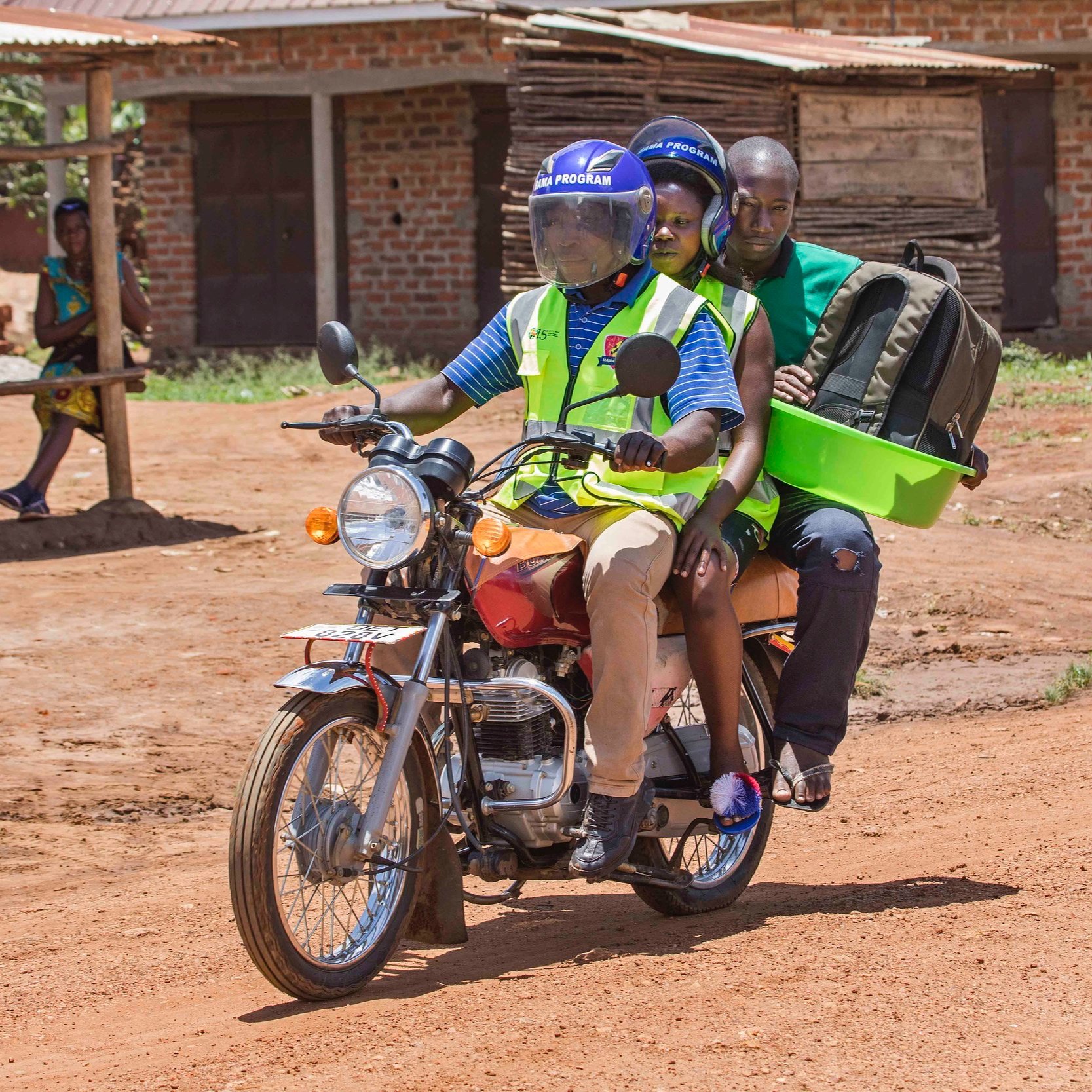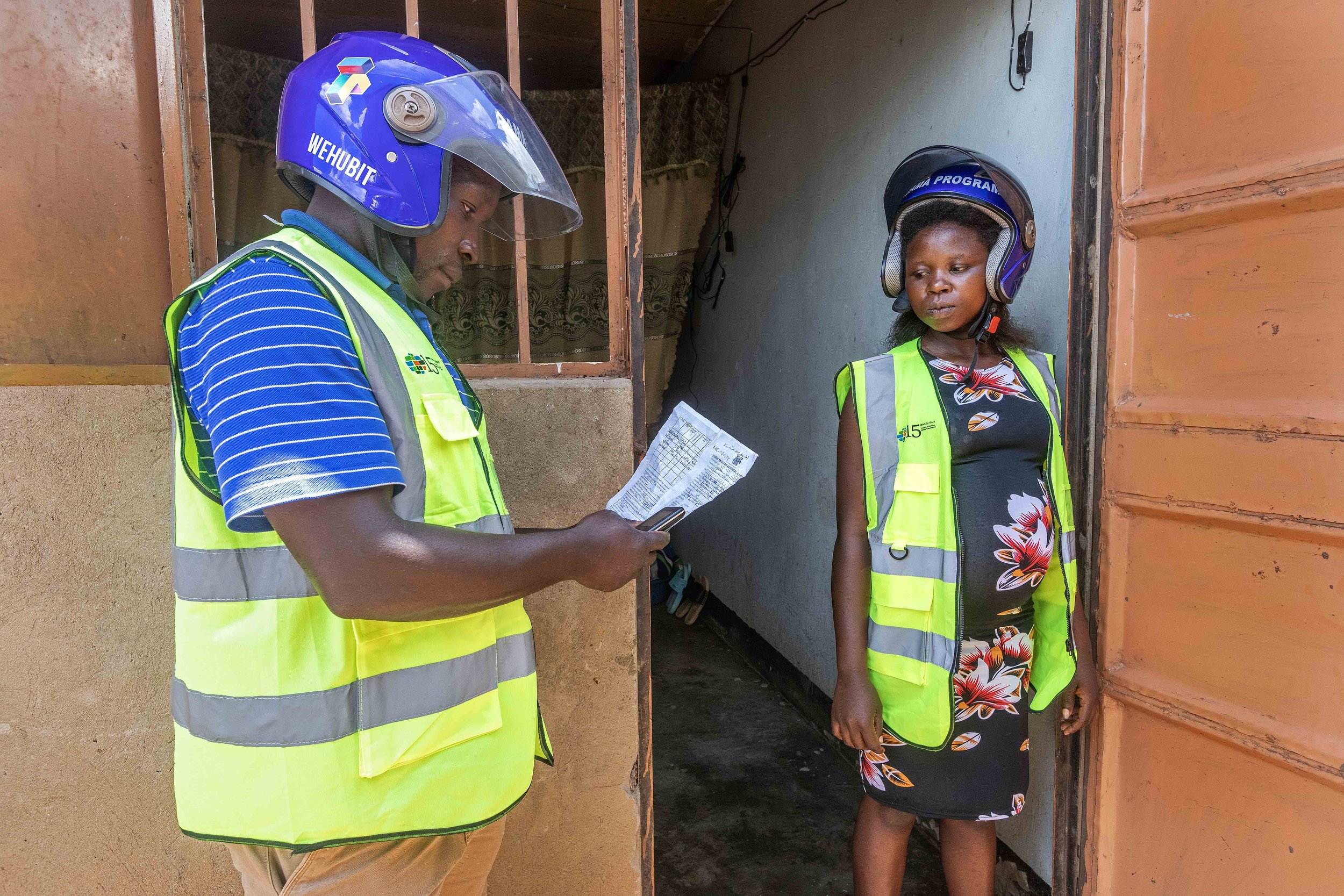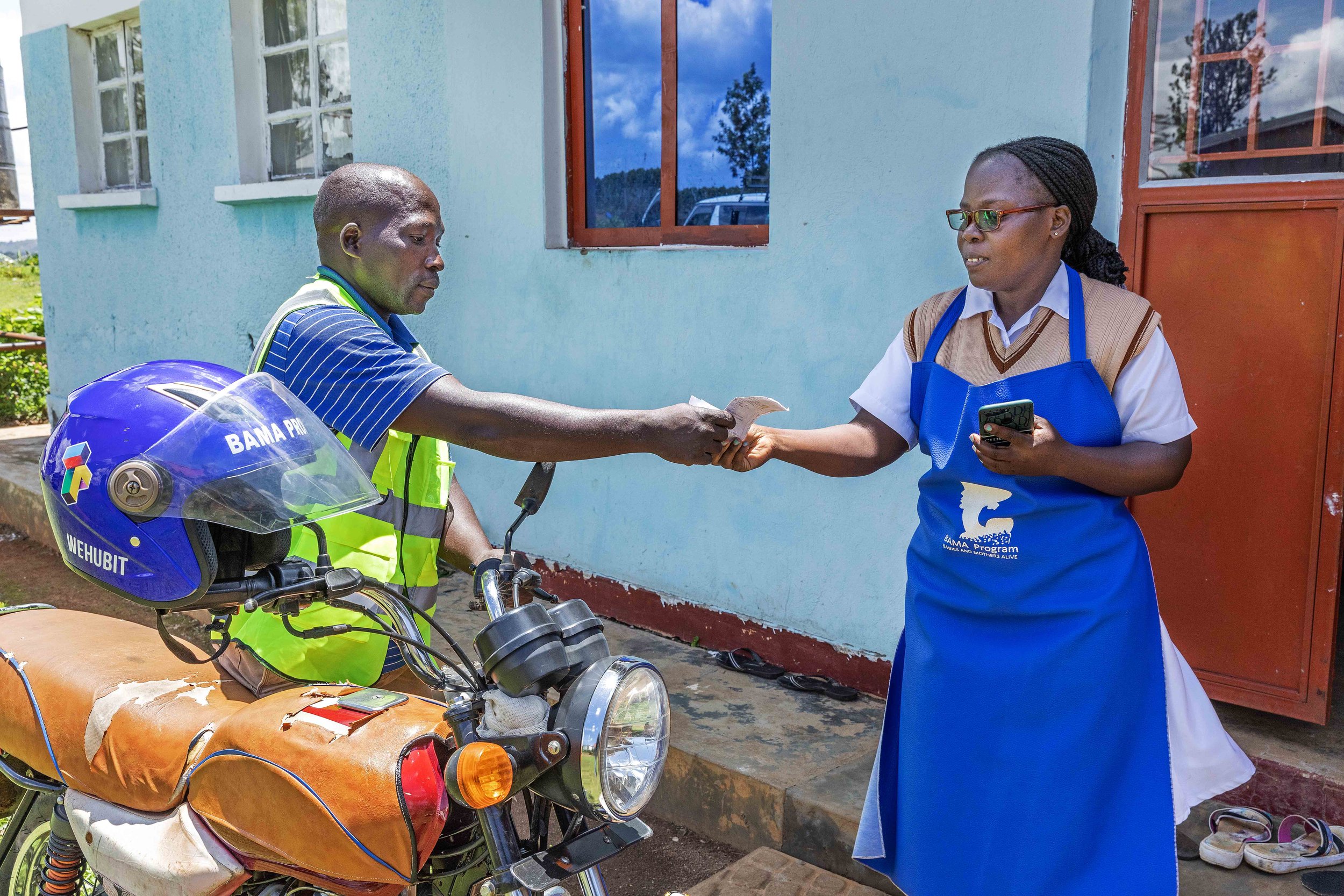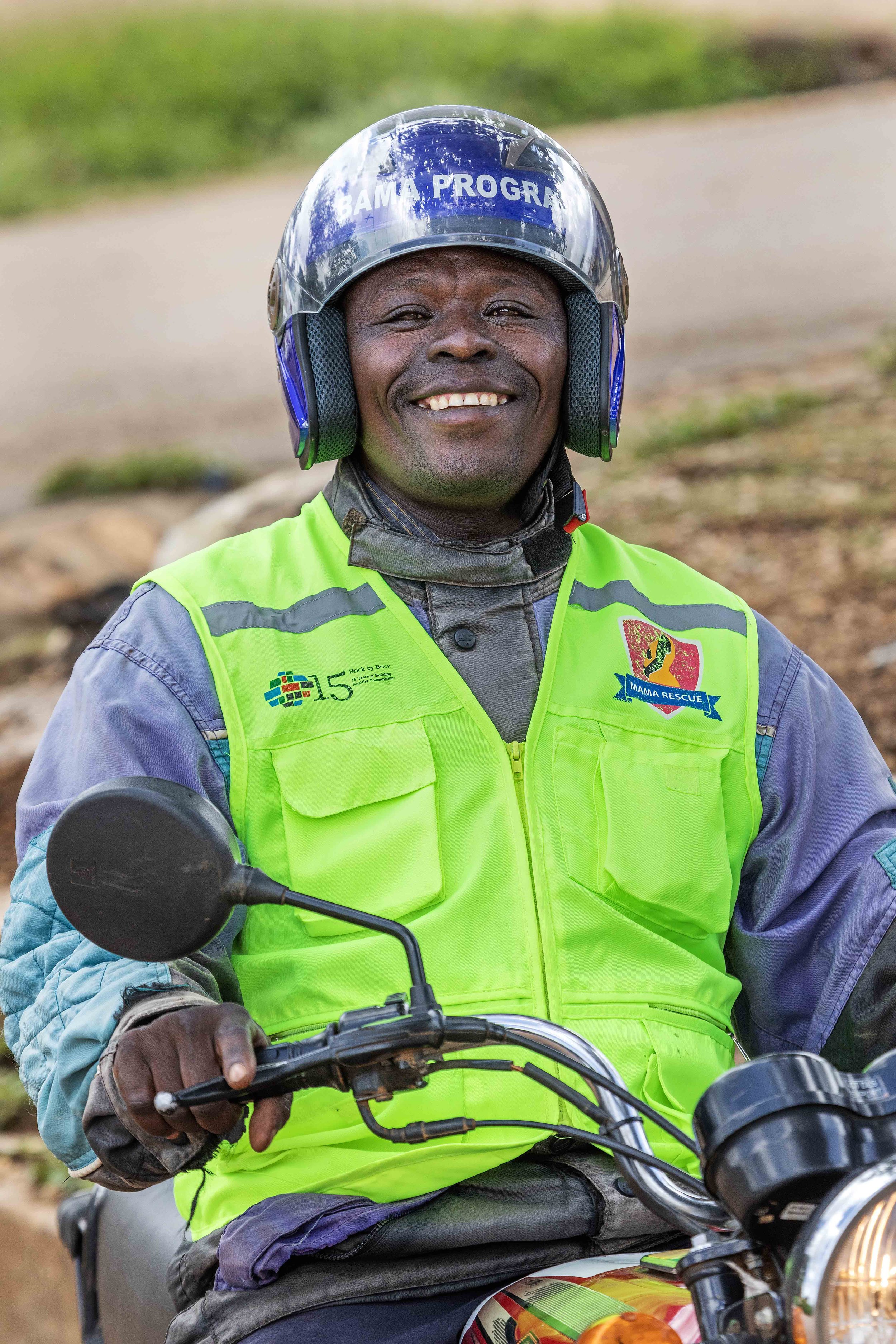
Uganda’s roads are poor, distances to health centers are far, and transportation is expensive.
When labor begins, a woman may walk for hours to reach the nearest health center.
Mama Rescue connects women in labor with motorcycle taxi drivers (boda bodas) for quick transportation from their homes to health centres.
In cases of life-threatening complications for mothers and babies, Mama Rescue also facilitates emergency referral transport.
HOW IT WORKS
Watch this video as BAMA board member Katharina Mueller gets a first-hand look at how Mama Rescue provides lifesaving transportation for Ugandan women in labor.
TO DATE, WE HAVE
Transported 27,400+ women in labor from village to health center,
Transported 2,750+ women in need of an emergency referral from health center to hospital, reducing the time of referral from 3 1/2 hours to 34 minutes,
Reduced the Decision-to-Delivery Interval (time from decision to perform a cesarean to delivery), from 124 to 47 minutes.
BAMA’s Mama Rescue Program addresses the second delay in reaching care.
Midwives play a crucial role in this process by sending critical information through the Mama Rescue platform, ensuring a seamless transition from the health center to the hospital and minimizing delays in life-saving treatment. By streamlining the process of transportation, logistics, and communication between facilities, Mama Rescue aims to significantly reduce the delays associated with childbirth.
This innovative approach not only mitigates the risks related to maternal and newborn mortality and morbidity but also boosts the confidence of mothers and midwives in the healthcare system.






MEET GLORIA
Naluge Gloria is one of our Mama Rescue beneficiaries.
Listen to her story and how this transportation system saved the lives of her baby and herself.
IT ALL STARTED WITH AN IDEA TO INCREASE ACCESS TO SKILLED BIRTH ATTENDANCE
Women in Uganda often struggle to reach a health facility where they can have their babies with a skilled attendant during labor and delivery.
Uganda’s roads are poor, distances to health centers are far, and transportation is expensive. When labor begins, a woman may have to walk for hours to reach the nearest health center. This delay in reaching quality maternal and newborn care is a major cause of maternal and newborn deaths and injuries.
Mama Rescue is an innovative and cost-effective solution that is saving lives.
In 2015, BAMA’s co-founder Dr. Marc Sklar met Dr. Peter Klatsky, a fertility specialist and professor at the Albert Einstein College of Medicine. Together with Dr. Daniel Murokora, BAMA’s Executive Director, they developed and piloted a mobile phone app linking women in labor to local taxi drivers. With the success of the initial pilot, BAMA sought seed funding from Together Women Rise and Enabel, the Belgian Development Agency. In 2021, we launched the Mama Rescue Project in the Rakai and Kyotera Districts of Uganda. In 2023, we began to scale this life-saving initiative to two additional districts, Kasese and Kabarole in Western Uganda.
OUR VISION FOR THE FUTURE
It’s time to scale our Mama Rescue Program.
Thanks to the generous support of Enabel Wehubit: the Belgian Development Agency, Together Women Rise and Spring Fertility, we have expanded the Mama Rescue Project to the Kasese and Kabarole Districts in 2023.
In this next phase, we are testing a new feature in our mobile phone platform: E-wallets. Working with Village Savings and Loan Associations, we will encourage Savings for Health, strengthening the sustainability of Mama Rescue. We are also working with the Ugandan Ministry of Health to explore opportunities to integrate Mama Rescue into the existing health delivery system. Donor support makes this expansion possible.
We envision a day when all women have access to affordable transportation in labor, and rapid emergency referral.
